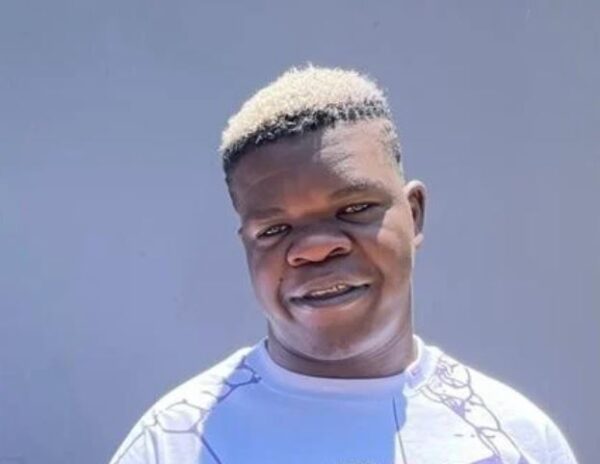
Life imprisonment has become a focal point in the ongoing battle against brutal crimes in South Africa, as demonstrated by the recent sentencing of the individuals involved in the kidnapping of Joshlin Smith. The Western Cape High Court delivered a stern message: those engaged in heinous acts, such as human trafficking, will face severe consequences, including life behind bars. This case not only underscores the dangers of child safety issues but also highlights the urgent need for effective crime sentencing measures. With the rise in human trafficking incidents, it’s imperative for communities to remain vigilant and informed about the involvement in crime that threatens the most vulnerable. Such rulings serve as a reminder of the justice system’s commitment to protecting children and ensuring that offenders are held accountable for their actions.
The concept of perpetual confinement poses significant implications for justice and social safety, particularly in light of the recent case involving the kidnapping of Joshlin Smith. Life sentences represent a firm stand against those who perpetrate egregious acts, such as human trafficking, which continues to plague areas like South Africa. The Western Cape High Court’s decision not only reflects the gravity of child safety challenges but also emphasizes the need for stringent crime sentencing policies. As society grapples with increasing reports of trafficking and other crimes, it becomes essential to foster discussions around effective prevention strategies and accountability. Such legal outcomes aim to create a safer environment for all by ensuring that those who harm others face the full weight of justice.
The Conviction of the Joshlin Smith Kidnappers
In a landmark decision delivered by the Western Cape High Court, three individuals, Jacquen ‘Boeta’ Appollis, Steveno van Rhyn, and Kelly Smith, were sentenced to life imprisonment for their involvement in the heinous kidnapping of young Joshlin Smith. Judge Nathan Erasmus’s firm statement during the sentencing echoed the court’s commitment to tackling serious crimes like human trafficking and child endangerment in South Africa. As tensions rise concerning crime rates across the nation, this ruling serves as a critical reminder of the legal system’s stance against such injustices. The conviction not only penalizes the perpetrators but also shines a spotlight on the ongoing struggles against human trafficking in the region, creating a platform for discussions around criminal accountability and community safety.
The case marks a significant moment in South Africa’s judicial history, particularly as it relates to crimes against children. The strong sentence reflects a broader societal consensus that echoes the need for rigorous punishment methods to deter future crimes. As communities grapple with the implications of such cases, they seek assurance that protective measures, including stringent crime sentencing and effective punishing mechanisms, will be enforced to safeguard children. The discussions that follow this ruling will likely focus on how to bolster existing frameworks for crime prevention and how to support victims of trafficking in the recovery process.
Frequently Asked Questions
What are the implications of life imprisonment for individuals involved in human trafficking in South Africa?
Life imprisonment serves as a severe penalty for those convicted of human trafficking in South Africa, as seen in the case of the perpetrators involved in the kidnapping of Joshlin Smith. The Western Cape High Court emphasized that the brutality of such crimes warrants harsh sentences to deter future offenses and protect vulnerable groups.
How does life imprisonment impact crime sentencing in cases of child safety issues such as those highlighted in the Joshlin Smith kidnapping?
In cases involving child safety issues, life imprisonment reflects the justice system’s commitment to addressing the severity of the crime. The sentencing of the individuals in the Joshlin Smith case illustrates a trend in the Western Cape High Court to impose life sentences for serious offenses that threaten the safety of children, sending a strong message against such crimes.
What standards are applied by the Western Cape High Court when sentencing for life imprisonment?
The Western Cape High Court applies strict standards when sentencing for life imprisonment, particularly in cases involving violent crimes and human trafficking. Judge Nathan Erasmus, in the Joshlin Smith kidnapping case, highlighted the absence of mitigating factors, underscoring the need for severe punishment for perpetrators who exhibit little remorse.
Why is life imprisonment considered necessary for human traffickers in South Africa?
Life imprisonment is deemed necessary for human traffickers to ensure that they cannot repeat their offenses and to serve as a deterrent to others. The harsh reality of the crimes, as seen in the Joshlin Smith case, demands strong legal repercussions to protect potential victims and reinforce societal norms against such violations.
How does life imprisonment contribute to addressing the involvement in crime related to human trafficking?
Life imprisonment effectively removes perpetrators from society, thereby addressing their involvement in crime related to human trafficking. This proactive approach aims not only to punish offenders but also to prevent further instances of victimization, as highlighted in the unfortunate case of Joshlin Smith.
What role does the National Child Protection Register play in conjunction with life imprisonment sentences?
The National Child Protection Register complements life imprisonment sentences by ensuring that individuals convicted of crimes against children, such as those involved in the kidnapping of Joshlin Smith, are publicly documented and prohibited from working with minors, enhancing overall child safety in South Africa.
How can the sentencing of human traffickers to life imprisonment affect public awareness of crime in South Africa?
The sentencing of human traffickers, like those involved in the Joshlin Smith case, to life imprisonment can significantly raise public awareness about the prevalence of such crimes in South Africa. It highlights the legal system’s stance against human trafficking, encouraging community vigilance and proactive measures to combat these injustices.
What message does life imprisonment send regarding the seriousness of human trafficking cases?
Life imprisonment sends a strong message that human trafficking cases are taken with utmost seriousness within the judicial system. The Western Cape High Court’s decision in the case of Joshlin Smith reinforces the commitment to combatting such crimes and safeguarding vulnerable populations.
| Key Point | Details |
|---|---|
| Sentencing | Jacquen ‘Boeta’ Appollis, Steveno van Rhyn, and Kelly Smith were sentenced to life imprisonment for kidnapping Joshlin Smith. |
| Judge’s Remarks | Judge Nathan Erasmus found no mitigating factors and stated there was a complete lack of remorse from the defendants. |
| Human Trafficking | The defendants were involved in a kidnapping that was influenced by substances, but the judge emphasized this couldn’t excuse their actions. |
| National Child Protection Register | Their names will be added to the National Child Protection Register to prevent them from working with minors. |
| Public Reaction | The case has sparked a nationwide discussion on human trafficking and the importance of child safety in South Africa. |
Summary
Life imprisonment is the harshest penalty in the judicial system and serves to convey the severity of crimes such as kidnapping and trafficking. In this case, the life sentences for Appollis, van Rhyn, and Smith emphasize the courts’ commitment to justice and the protection of society. This ruling not only punishes the offenders but also aims to deter future crimes, reflecting a significant step towards addressing human trafficking and enhancing child safety in South Africa.







